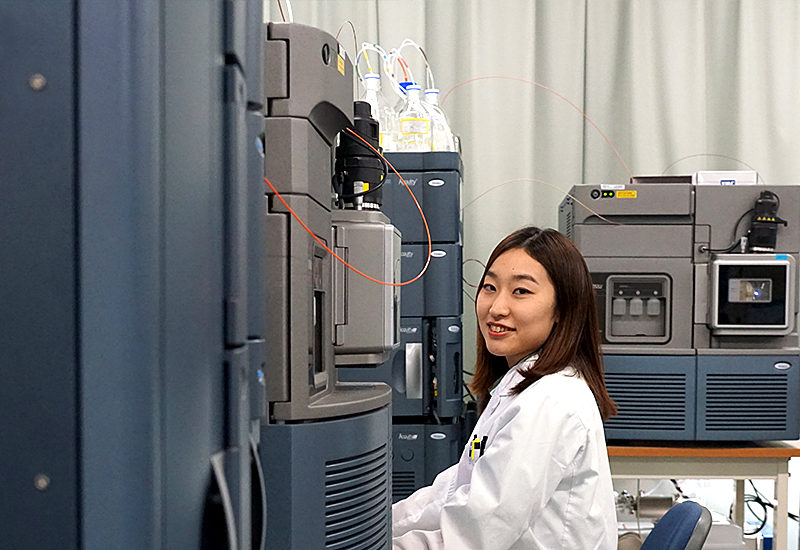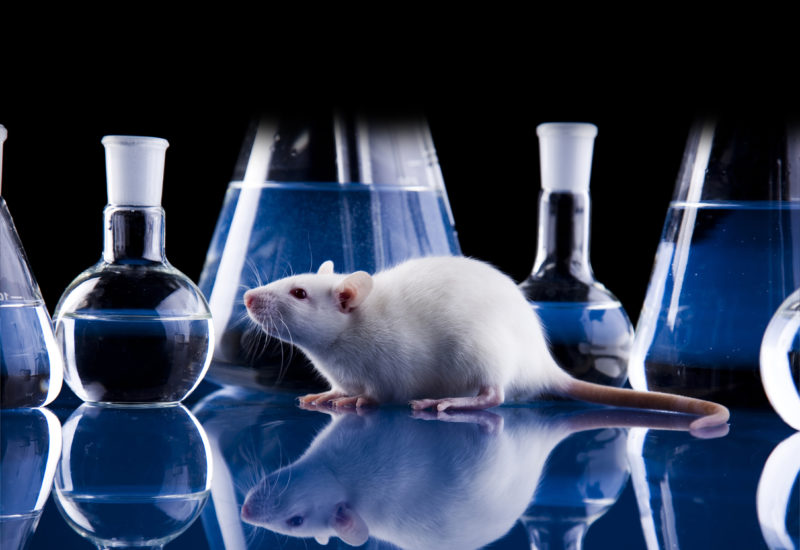As a drug is metabolized, formation of metabolites can have unintended pharmacological or chemical effects on the body, so developers must identify all likely metabolites and understand how they could behave in a patient. Metabolite Identification (MetID) is used to determine how many/which metabolites are formed and the percent of parent exposure (AUC) in biological matrices of treated animals in nonclinical absorption, distribution, metabolism, and excretion (ADME) and pharmacokinetic (PK) studies, which support in vitro species comparison data. This complement of in vitro and in vivo components is considered as a whole ensure there aren’t human-specific metabolites formed, which could be harmful and difficult to explore within validated test systems.

In Vivo MetID Services to Support Drug Development
You can now request quotes for our research services on BioIVT.com!
Whether you need a single assay or a complete ADME program, BioIVT’s experts will help design and implement the appropriate studies for your drug and research objectives. View BioIVT’s comprehensive portfolio of ADME research services.
Our Approach to MetID
Met ID and profiling services are included in several studies in a standard in vivo package to determine how many and what metabolites are formed and the percent of parent exposure (AUC); a metabolite of greater than ten percent of total drug-related AUC would be considered significant and possibly warrant further investigation, according to FDA’s 2016 Guidance for Industry, “Safety Testing of Drug Metabolites.”
We offer two different in vivo metabolite identification services:
- Independent of a contracted in vivo ADME study
- As part of a contracted in vivo ADME study

In Vivo MetID Outside Contracted ADME study
Sponsors may choose to send treated samples from in vivo human or animal studies for analysis through our Bioanalytical Services team at XenoTech in Kansas City. This service involves characterization and identification of metabolites using LC-MS for treated plasma, whole blood, urine, bile, and feces from clinical and nonclinical in vivo studies. Our capabilities for this service within our bioanalytical department include:
- Small molecule test articles
- Customized, structure-based study designs
- Biological materials tested: whole blood, plasma, urine, bile, fecal homogenates
- Structural elucidation: Proposed biotransformations and structural information for the test article related peaks, where possible
- Data reviewed by experienced scientists
Additional MetID service options:
- Relative abundance of metabolites based on UV or radioactive peak area
- Calculation of percent dose excreted in urine, bile or feces from radioactive peak area data
Instrumentation for Metabolite Characterization
- Waters Xevo G3 QTof (Quadrupole Time of flight) with Acquity Premier LC-MS/MS system
- Waters Xevo G2-XS QTof with Acquity UPLC system
- Accurate mass for confident biotransformation assignment and structural elucidation of metabolites
- MSE Simultaneous acquisition of all precursor and product ion spectra in one injection for fast turnaround
- Waters MassLynx and UNIFI software for data acquisition and processing
- Sciex 4000/5500 QTRAP (triple quadrupole linear ion trap) with Shimadzu Nexera LC-MS/MS system
- Sensitivity for detection of low-level metabolites
- Analyst® and Light Sight® software to identify known and unexpected metabolites
- UV, fluorescence and radiometric detection in conjunction with mass spectrometry
MetID Accompanying Contracted In Vivo ADME study
In contracted in vivo ADME studies, metabolite profiling and identification are conducted using plasma collected during the PK study, and in urine, feces, and bile collected during the mass balance and biliary excretion studies. Samples are analyzed using HPLC-RAD to ‘profile’ metabolites according to their retention time, and ‘identified’ using LC-MS mass transition.
- Biological matrices include plasma, urine, fecal homogenate, and bile (others may be available upon client request)
- Many options for route of administration, radionuclides, and species (see table)
- LC-MS analysis for comprehensive metabolite identification and structural elucidation
- Profiling option using HPLC-RAD (including development of sample processing method and on-line radiochromatography)
In Vivo ADME Study Capabilities
The Drug Development Solutions Center has many capabilities available to clients to include many animal species and radionuclides. Other species may be available upon request, contact a XenoTech representative to find out more about how our flexibility can benefit your drug’s nonclinical development.
| Routes of Administration | Radionuclides | Animal Species |
|---|---|---|
| Oral Intravenous (administration or infusion) Percutaneous Subcutaneous Intramuscular Intracheal Opthalmic Colorectal Intraduodenal Nasal Intraocular Sublingual Intrauterine Intracerebral Intravesical Knee Joint | 14C 3H 125I 33P 35S 51Cr 111In 55,59Fe 65Zn 75Se 90Y 153Gd | Rats Mouse (including chimeric with humanized liver) Rabbit Dog Monkeys Miniature pig Animal models of human disease (knockout models) |
Regulatory Compliance
Studies conducted at Drug Development Solutions Center also meet or exceed standards required by regulatory authorities, including FDA and EMA, just as with our Kansas City campus. While in the United States, there is no method by which an institution can claim certified compliance with Good Laboratory Practice (GLP) standards, the PMDA can grant certification following an inspection that approves a Japanese facility as GLP-compliant in specific practices. The Drug Development Solutions Center has this certification for all bioanalytical services, a critical component of many animal studies. The Center is also certified by AAALAC International for ethical use of animals in research so you can be sure services exceed quality standards required by the FDA upon IND or NDA submission.
By contracting a Drug Development Solutions Center study through XenoTech, we make it easy for North American and European clients to benefit from the years of experience our Tokai team has built. Read more in our blog about how we make it easy to work with the Drug Development Solutions Center for your in vivo nonclinical services.
Related Services:
Our in vitro Metabolite Identification IND-enabling assays identify the number and structure of metabolites produced as a result of interaction with drug-metabolizing enzymes at various sites of metabolism and help determine preliminary components of reaction phenotyping studies.

